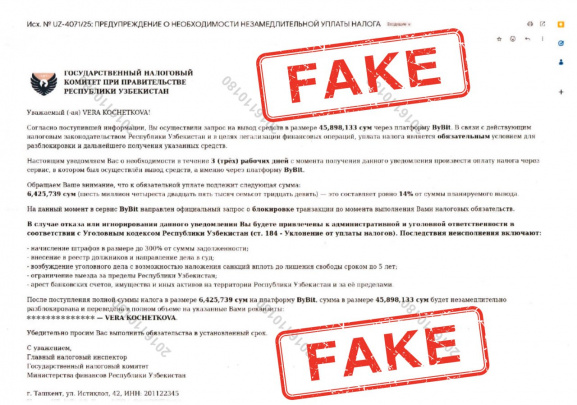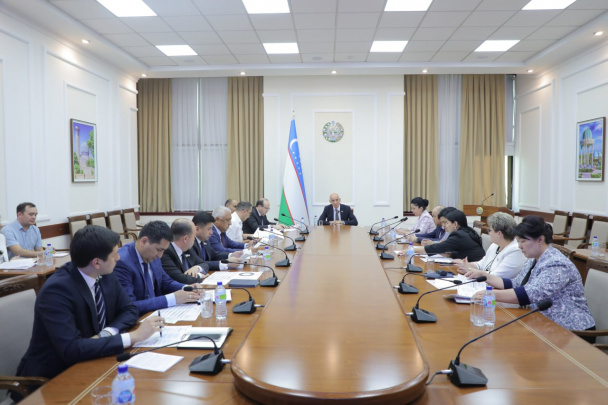Gov’t plans to tax bloggers earning from online ads
A draft law titled “On the Protection of User Rights on Online Platforms and Websites” has been published for public discussion.

Photo: KUN.UZ
The primary goal of the proposed legislation is to regulate social relations in the area of protecting users’ rights on online platforms and websites operating within the territory of Uzbekistan. It does not apply to websites of mass media outlets that have been officially registered; such media entities are regulated under the Law “On Mass Media.”
Key definitions
The draft law introduces clear definitions for several key terms, including:
- Blogger: A physical person (online platform user) who publishes content of socio-political, socio-economic, or other nature on their account or in a public community, enabling discussion among other users.
- Influencer: A blogger with over 10,000 followers on their account or in a public community on an online platform.
- Website owner: An individual or legal entity that independently determines the rules for using the website, including how content is posted.
- False information: Any form of information that misrepresents facts about individuals, objects, events, or processes, causing incorrect impressions and not reflecting reality.
Rights of users, bloggers, influencers, and website owners
The proposed law outlines several rights, such as:
- Creating accounts or public communities on online platforms;
- Access to complete and accurate information about the terms of use of online platforms;
- Preparing, obtaining, and distributing content by any means not prohibited by Uzbek law;
- Expressing opinions freely on online platforms and websites in accordance with national legislation;
- Protecting one’s rights, freedoms, legal interests, dignity, and honor through competent authorities or the courts;
- Requesting online platform owners, community moderators, or website administrators to respect and ensure compliance with users’ rights and lawful interests;
- Earning income from creative, commercial, or other legal activities in accordance with national legislation and platform rules;
- Declining platform-recommended products that contradict personal values or interests;
- Restricting the display of unwanted content;
- Being protected against unjustified restrictions on access to their account, community, or website and receiving a notice with the reason for such restrictions.
Obligations
Users and administrators are required to:
- Comply with Uzbek laws;
- Respect the rights, freedoms, honor, and dignity of others;
- Refrain from distributing illegal content;
- Remove illegal content if distributed;
- Follow anti-money laundering, counter-terrorism financing, and anti-weapons proliferation laws when collecting voluntary donations via platforms or websites.
Additional responsibilities for influencers and website owners
In addition to the above, influencers and website owners must also:
- Verify the accuracy of content before making it public;
- Avoid sharing or allowing the dissemination of false information that could harm reputations or degrade individuals or organizations;
- Monitor all sections of their accounts, websites, or communities accessible to the public – including comments – for illegal content and promptly remove it;
- Prevent the spread of illegal content via their platforms;
- Remove false information or, if requested by affected individuals, clearly label content as false;
- Issue corrections if false or defamatory content about individuals or organizations is confirmed;
- Publicly provide contact details for feedback and inquiries;
- Avoid publishing investigation materials or influencing court outcomes without proper written permission from law enforcement until a court ruling is issued.
Importantly, influencers and website owners who earn income through advertisements or other revenue-generating activities on their platforms must pay taxes in accordance with Uzbekistan’s Tax Code. Influencers who do not publicly disclose contact information cannot receive advertising deals.
Enforcement and global practices
The draft law introduces new enforcement measures: Online platforms that consistently fail to cooperate with relevant Uzbek authorities may face reduced access speeds based on court decisions, rather than outright blocking. If a blogger or influencer fails more than three times within a calendar year to remove illegal content as instructed, their activity may be suspended for up to six months.
The bill draws on best practices from developed nations. For instance:
- The EU’s Digital Services Act introduces high standards for online platforms;
- Germany mandates the removal of illegal content within 24 hours for platforms with more than 2 million users;
- France enforces strict policies against hate speech, terrorism, and child pornography online;
- Turkey requires foreign IT companies to appoint local representatives;
- Kazakhstan has introduced a legal framework to regulate bloggers and platform activity.
Currently, Uzbekistan lacks clear legal norms regarding the rights of online platform users. Regulations on content dissemination are fragmented and insufficiently systematic.
Public consultation
The draft law will remain open for public discussion until May 27.
On May 7, during a roundtable discussion at the Legislative Chamber of the Oliy Majlis (Parliament), the Committee on Innovation Development and IT revealed that a unified and directly applicable law regulating this area had been drafted with input from state bodies, public organizations, and media experts.
Related News

16:55 / 15.05.2025
Tax Committee warns of fraudulent emails about tax debt

20:58 / 12.05.2025
From blocking to throttling: Uzbekistan's new approach to online platform regulation

14:18 / 10.05.2025
Gov’t drafts new law to regulate media and online platforms

20:57 / 05.05.2025



